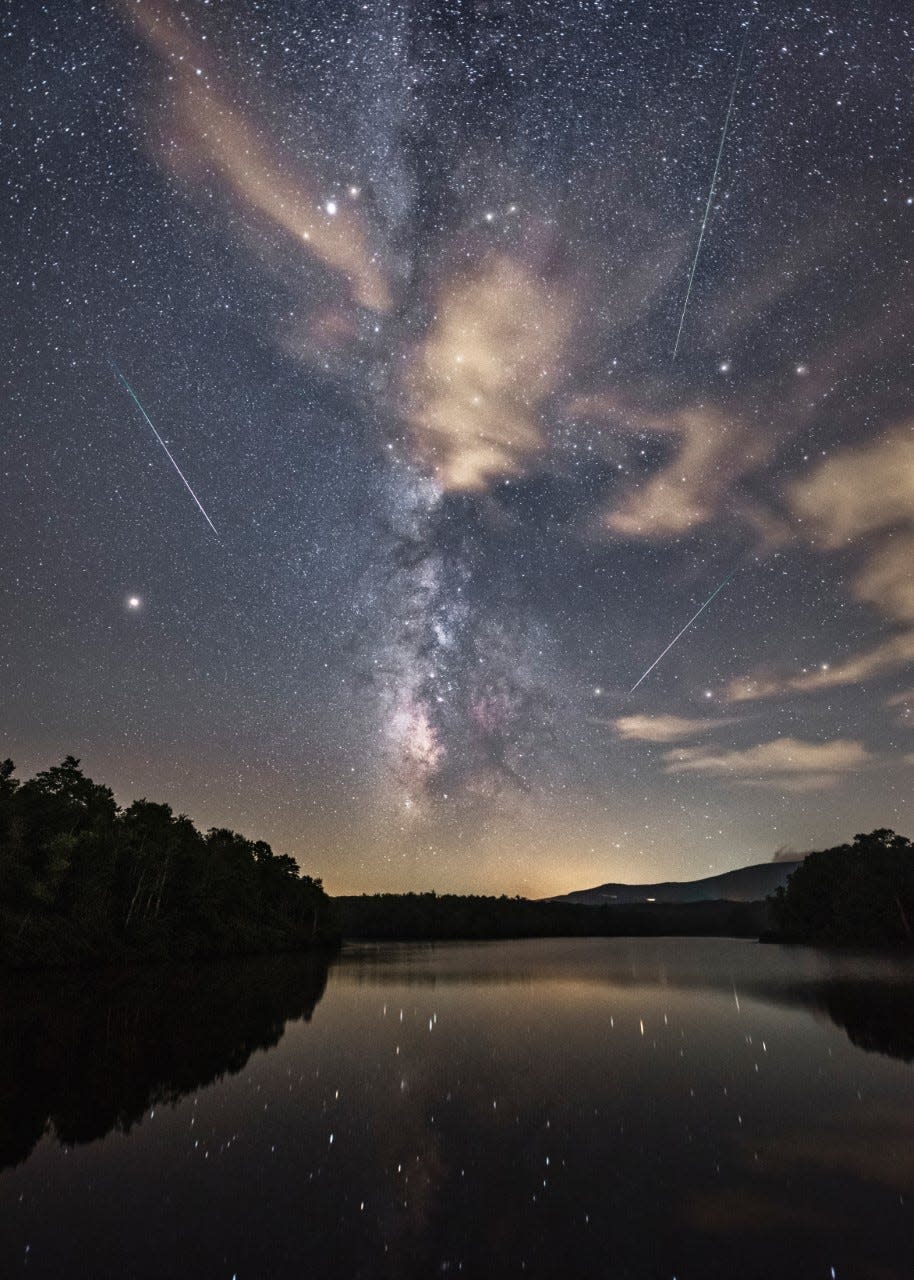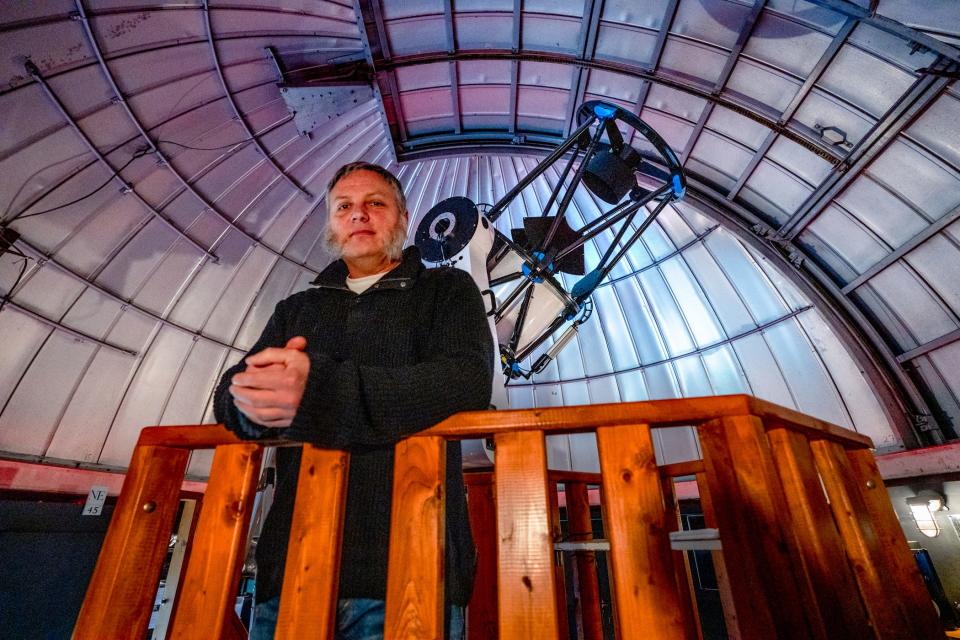Poor viewing conditions trigger cancellation of observatory's meteor shower watch party
The Perseid meteor shower event tonight at the Frosty Drew Observatory & Science Center in Charlestown has been canceled due to poor viewing conditions, and Friday night's event is also in doubt.
With tonight's full moon already expected to wash out all but the brightest of the meteors, fog and clouds are forecast to draw a curtain across the night sky.
"Friday night is still on, but the forecast is looking pretty grim, and I expect we will cancel that event later today or early tomorrow, unless the forecast improves," Frosty Drew Observatory & Science Center Director Scott MacNeill said in an email.
The Perseid meteor shower will be at its peak early Friday and Saturday mornings, "blazing the starscape with up to 100+ meteors per hour," according to the observatory, which had initially invited the public to watch the show from Thursday night into the early hours of Friday morning and again from Friday night until the early hours of Saturday morning.
Here's what NASA has to say about the Perseids:
"The Perseid meteor shower, which peaks in mid-August, is considered the best meteor shower of the year. With swift and bright meteors, Perseids frequently leave long "wakes" of light and color behind them as they streak through Earth's atmosphere. The Perseids are one of the most plentiful showers with about 50 to 100 meteors seen per hour."

"Perseids are also known for their fireballs. Fireballs are larger explosions of light and color that can persist longer than an average meteor streak. This is due to the fact that fireballs originate from larger particles of cometary material. Fireballs are also brighter, with apparent magnitudes greater than -3."
The sky's the limit: Could the full moon ruin the 'best meteor shower of the year'? The Perseids peak this week
Unfortunately, the moon, which is full Thursday, will be bright enough to outshine all but the brightest meteors, according to Frosty Drew. The observatory is also keeping an eye on the weather and will cancel if it's too cloudy, foggy or if it rains.
Frosty Drew Observatory plans for the meteor shower
Weather permitting, the observatory still plans to be open at 8:30 p.m. Friday night. Before the show peaks, people can use the observatory's telescopes to see Saturn, Jupiter and more.

A window to the stars: New telescope at Frosty Drew Observatory provides glimpse at galaxies far, far away
"Once meteors become frequent, we will all make our way outside to view the meteor shower. We may have portable telescopes available throughout the night with some great views of the planets and brighter stars. The Science Center and Sky Theatre will remain open all night with videos and showcases of celestial objects we have photographed at Frosty Drew Observatory," the observatory says on its website.
"Perseids will start appearing more frequently after 10:00 pm, with the shower really taking off shortly after midnight," the website says.
What to know: Where can you see the Perseid meteor shower? A visual guide to every meteor shower in 2022
Tickets are required for anyone over 4 years old and cost $5. Tickets must be purchased online via the observatory's website and won't be sold at the event.
Get to a dark spot: Perseid viewing tips
For those who can't make it to Frosty Drew on Friday, here are some viewing tips from NASA's Jet Propulsion Laboratory at the California Institute of Technology:
"To observe this shower, get to a dark spot, get comfortable, bring blankets to stay warm (just in case!), and let your eyes adjust to the dark sky. A cozy lounge chair makes for a great seat, as does simply lying on your back on a blanket, eyes scanning the whole sky. You may want to pack some bug spray for this potentially warm summer nights!"
"The meteors will seem to fly out, or radiate, from an area in the sky in between Cassiopeia and Perseus, towards the North/Northeast. These meteors originate from the dusty tail of Comet Swift-Tuttle as the Earth crosses its old orbital path."
Meteors can also be spotted before and after the peak.
jperry@providencejournal.com
(401) 277-7614
On Twitter: @jgregoryperry
Be the first to know.
Sign up for our breaking news alerts
This article originally appeared on The Providence Journal: RI's Frosty Drew observatory nixes meteor shower party due to weather

